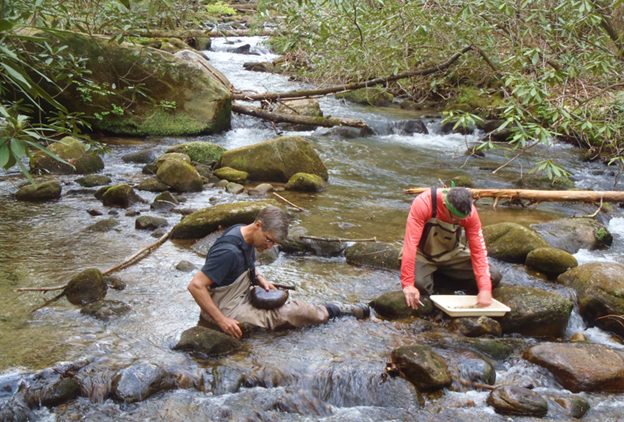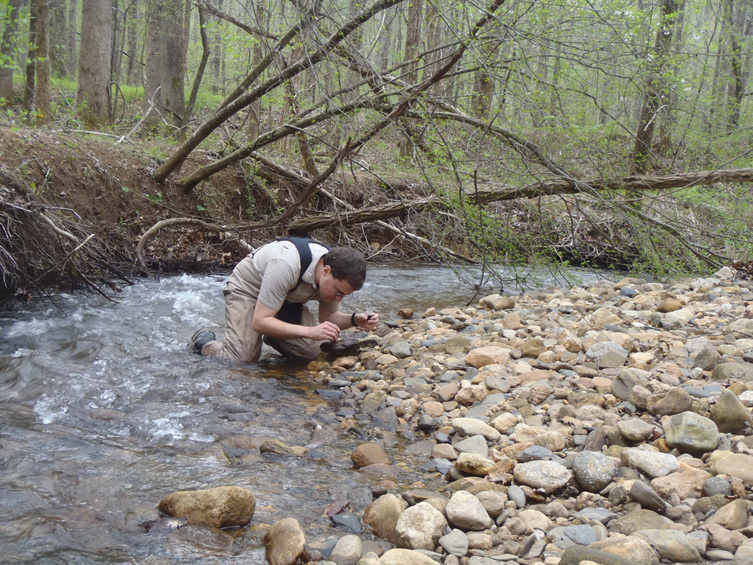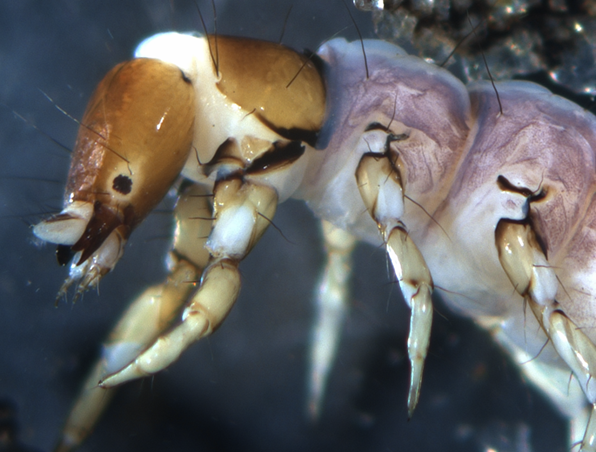Aquatic macroinvertebrates are insects and other invertebrates that live in streams, rivers, lakes, and other waterbodies. Aquatic macroinvertebrate communities are affected by fluctuating environmental conditions and so can be particularly useful indicators of water quality as they respond to integrated stresses over time. The response of the macroinvertebrate community to various pollutants (e.g. organic, toxic, and sediment) is assessed through interpretation of diversity, known organism tolerances, and relative abundance.

Biologists from DHEC's Aquatic Science Programs (ASP) sample streams across South Carolina by collecting macroinvertebrates from all available habitats at each site, striving for diversity over quantity. The macroinvertebrates are identified under a microscope and the data is analyzed to generate a water quality score which reflects the degree to which the community meets expectations for that region of the state. Since 1977, over 800,000 bugs have been identified by this program.
What does the monitoring data show?
Ambient macroinvertebrate monitoring data shows the biological condition of waters of the State. The ASP uses this data to support a variety of state and federal programs. Additionally, special macroinvertebrate studies are conducted at various sites to evaluate specific potential point and non-point source pollution impacts.
How to find out more!
- Most Recent Water Quality Scores
- Macroinvertebrate Community Monitoring Sites and Years Sampled
- Standard Operating Procedures (can be consulted for the details of our sampling and analysis methodology)
- Recent Developments in the Macroinvertebrate Water Quality Monitoring Program
More extensive and/or older data may also be available and can be requested from ASP. Requested data may include habitat assessments, physical/chemical (dissolved oxygen, pH, conductivity, and temperature) data, lists of taxa, and photographs in addition to the final assessment scores.

Contact
Questions about macroinvertebrates can be directed to David Eargle at:
803-898-4145
David.Eargle@des.sc.gov

